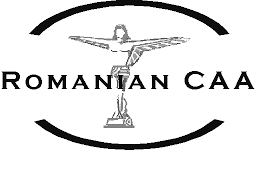Between 14 and 15.02.2011 at the headquarters of the ICAO Regional Office (EUR / NAT) in Paris, France, the seminar "ICAO Safety Management Requirement Implementation in States" was held.
By organizing this first seminar on the implementation of SSP / SMS in the EUR / NAT countries, ICAO considered the following general aspects:
- presentation of the new concept of safety management as a possible basis for collaboration between government aviation organizations and service providers in order to solve safety problems;
- discussing future directions for the development of safety policies and regulations;
- discussing the problems and challenges present in the process of collecting, analyzing and exchanging safety information;
- analysis of the possibilities for regional and subregional cooperation, as well as the role and activities of international organizations;
- harmonization of the positions of ECAC Member States, in particular those of EU Member States, on safety management issues;
- checking the implementation stage of SSP / SMS at European level;
- identifying common problems for the implementation of SSP / SMS and supporting the implementation efforts of states by disseminating "good practices" within the European aviation industry.
The seminar was attended by representatives of civil aviation organizations and service providers from 22 countries (Austria, Azerbaijan, Belgium, Cyprus, Czech Republic, Finland, France, Germany, Greece, Ireland, Italy, Latvia, Luxembourg, the Netherlands, Norway, Poland). , Romania, Russian Federation, Spain, Switzerland, Ukraine, Great Britain) and 3 international civil aviation bodies (ICAO, EASA, EUROCONTROL).
Among the challenges that civil aviation bodies and organizations have to face, in the conclusions of the two days allocated by ICAO for this first seminar, we can mention: the need to develop and publish guidance and implementation materials, the need to provide specialized training to whose activity has a direct impact on safety, the low volume of human and material resources that can be allocated to the implementation and proper functioning of SSP / SMS, the need to develop and use a common vocabulary, better ranking and coherence between different levels of regulation, etc.
